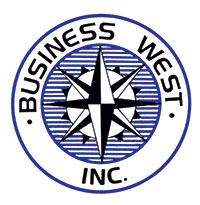By Murrel Bland
Tom Burroughs and Steve Fitzgerald have different views about how to solve the budget shortfall facing the State of Kansas.
Burroughs, representing the 33rd District that includes the Muncie community, Edwardsville and Bonner Springs, and Fitzgerald, who represents the Piper community, Lansing and Leavenworth, presented their views at a legislative coffee Saturday, March 11 at the Bonner Springs Library. About 50 persons attended; the League of Women Voters and the NAACP of Bonner Springs, sponsored the event.
Burroughs is a moderate Democrat and Fitzgerald is a conservative Republican. Both voted against a budget proposal that Governor Sam Brownback proposed. Now legislators are trying to find a tax plan that would solve the state’s immediate shortfall of about $280 million. Brownback had proposed increasing the tax on alcohol and tobacco and business filing fees.
A proposal to increase state income tax and eliminate the “LLC loophole” passed both houses, but didn’t quite have enough votes to withstand a veto by the governor. This loophole exempts small business owners from paying state income taxes. This was supposed to boost the state’s economy. However, its critics said it did not, but simply was a “free ride” for business. Burroughs said he didn’t vote for the proposal because it didn’t really address the needs of the state adequately.
Fitzgerald said that one of the reasons that the “LLC loophole” didn’t work as well as planned was because two of the state’s major industries—agriculture and oil and gas—were suffering.
In addition to the current shortfall, legislators are having to come up with a new funding formula for K-12 education. This comes after a recent decision from the Kansas Supreme Court that ruled school funding is not adequate. The court did not specify an amount, but gave the legislators until June 30 to come up with an acceptable plan. There are committees in both the Kansas House and Senate working on this formula.
Various dollar amounts have been suggested as to how much funding may be needed. They vary from $372 million to $700 million according to Kathy Damron, a lobbyist for the Kansas City, Kansas, Area Chamber of Commerce. Fitzgerald said it may be possible for districts to draw on excessive reserves to meet this obligation. Fitzgerald acknowledged the court action. However, he said that the state spending on schools is at an all-time high.
Both Fitzgerald and Burroughs discussed the retirement fund for state employees. Both said that those presently receiving retirements are safe—that the state can’t draw on those funds. Burroughs was critical of delaying payments to the retirement fund.
Burroughs said that state employees don’t receive that much money and have not received a raise for about nine years.
There have been a couple of proposals to increase the motor fuels tax. A Kansas Senate bill would boost the tax 5 cents a gallon; the Kansas House has a proposal for an 11-cent increase. This revenue would fund work on highways. Burroughs said that about $2 billion has been taken from the Kansas Department of Transportation to shore up shortfalls in other areas. Kansas has per capita more miles of roadways than any other state.
Conservative critics such as Jeff Glendenning said that the state has allowed “spending to spiral out of control.” Glendenning said an efficiency report in 2016 showed how about $2 billion could be saved over a five-year period; however, these suggestions were not implemented. Glendenning is the state director for Americans for Prosperity.
Murrel Bland is the former editor of The Wyandotte West and The Piper Press. He is the executive director of Business West.
